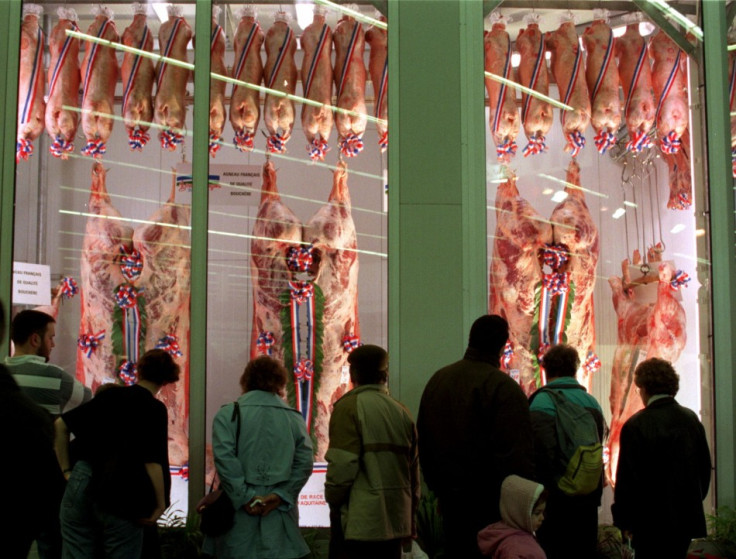Slash Meat Consumption to Save Planet, Warn Scientists

Eating less meat and recycling waste will rebalance the global carbon cycle and will help to tackle global warming, according to a new report.
Researchers from the University of Exeter have claimed that people should eat less meat to tackle climate change. The discovery was made when they were studying meat consumption across the world.
The researchers also warned that if people would not cut short on their meat consumption, our earth would be spelled for disaster.
According to the scientists, in order to feed a population of 9.3 billion by 2050 we need to dramatically increase the efficiency of our farming by eating less beef, recycling waste and wasting less food. These changes could reduce the amount of land needed for farming, despite the increase in population, leaving sufficient land for some bio-energy.
To make a really significant difference, however, we will need to bring down the average global meat consumption from 16.6 percent to 15 percent of average daily calorie intake - about half that of the average western diet.
If we change the way we use our land, recycle waste, and dedicate enough space to growing bioenergy crops, we could bring down atmospheric carbon dioxide to safe levels, the researchers argued. On the other hand, if we choose not to change our ways, we would lose our natural ecosystems and face increasingly dangerous levels of atmospheric carbon dioxide, they said.
Researchers have generated four different future scenarios, based on dietary preferences and agricultural efficiency up to 2050: 'high-meat, low-efficiency', 'low-meat, low-efficiency', 'high-meat, high-efficiency' and 'low-meat, high-efficiency'.
They used mathematical models to forecast the effects of each scenario on atmospheric carbon dioxide.
By 2050, a 'high-meat, low-efficiency' scenario would add 55 ppm of carbon dioxide to the atmosphere, whereas a 'low-meat, high-efficiency' approach with carbon dioxide removal could remove 25 ppm. A 25 ppm reduction could mean we avoid exceeding the two-degree rise in global temperatures that is now widely accepted as a safe threshold.
"Our research clearly shows that recycling more and eating less meat could provide a key to rebalancing the global carbon cycle. Meat production involves significant energy losses: only around four per cent of crops grown for livestock turn into meat. By focusing on making agriculture more efficient and encouraging people to reduce the amount of meat they eat, we could keep global temperatures within the two degrees threshold," said Tom Powell, researcher at the University of Exeter, in a statement.
"Bioenergy with carbon storage could play a major role in helping us reduce future levels of atmospheric carbon dioxide. However, we only stand a chance of realising that potential, both for energy and carbon capture, if we increase the efficiency of agriculture. With livestock production accounting for 78 per cent of agricultural land use today, this is the area where change could have a significant impact," said Tim Lenton, researcher at the University of Exeter, in a statement.
© Copyright IBTimes 2025. All rights reserved.



















